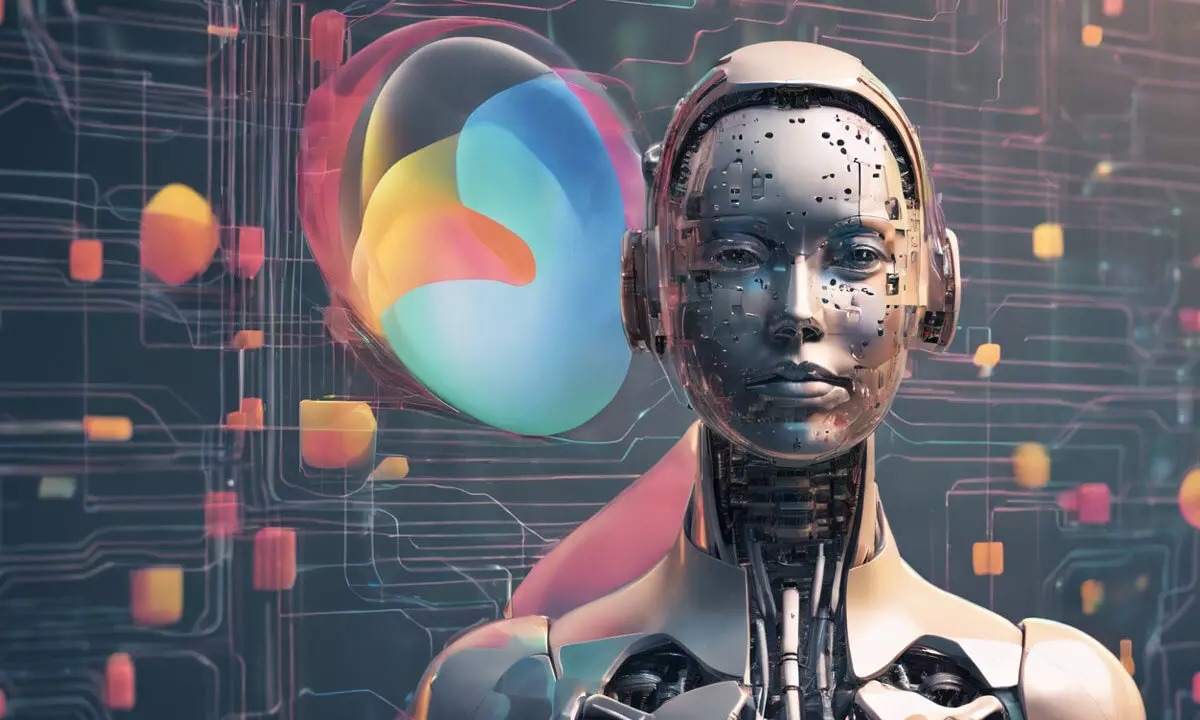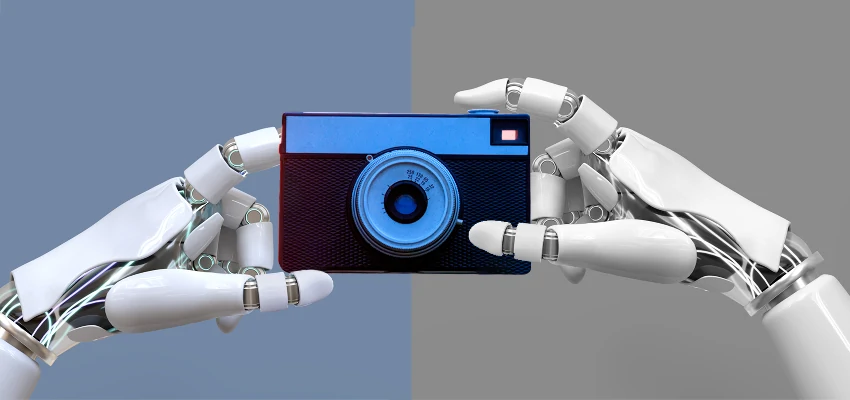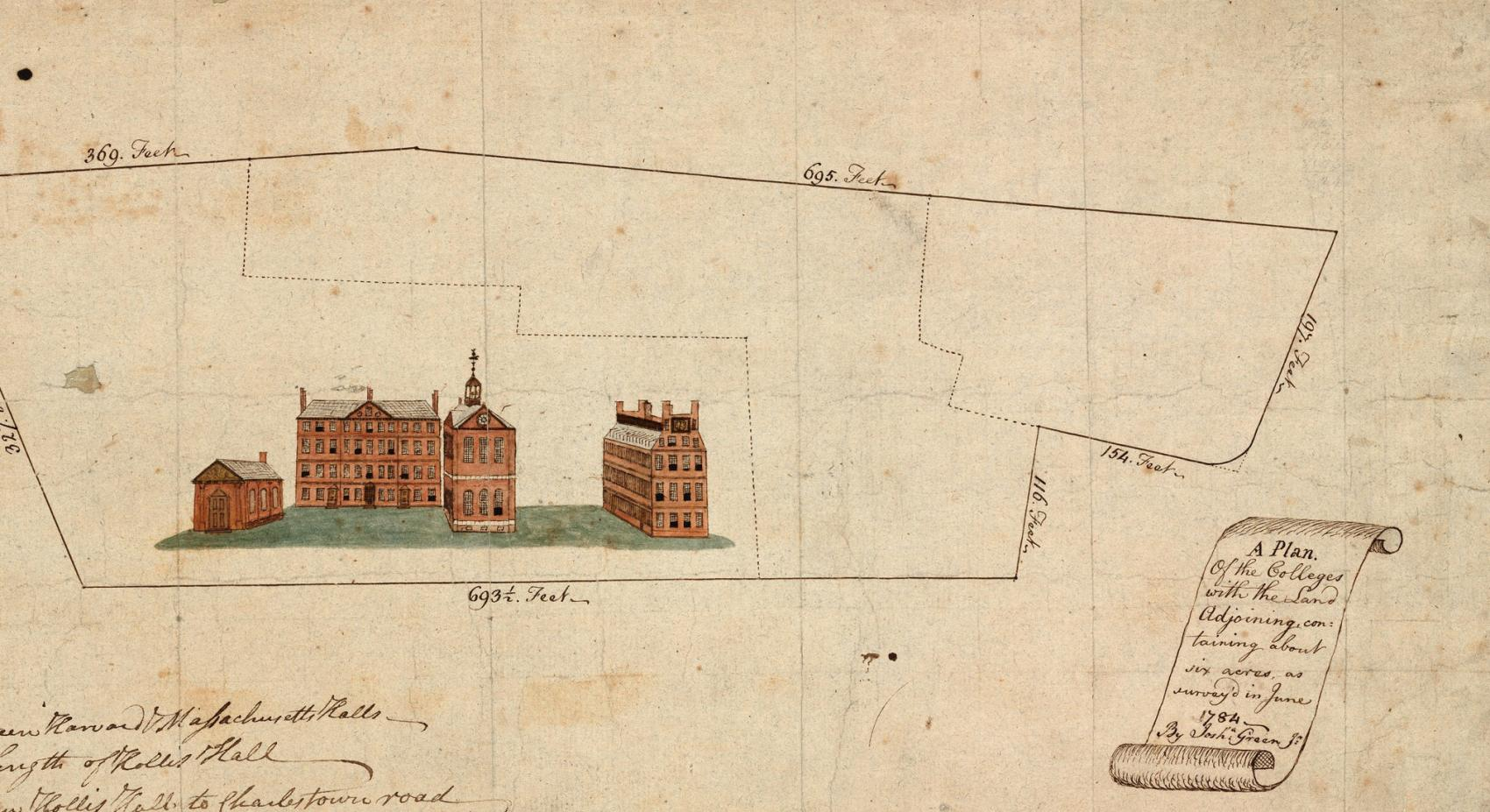In discussions about AI and future innovations, one might expect a narrative dominated by dystopian fears; however, thought leaders like Ruha Benjamin challenge this narrative. She emphasizes the importance of integrating social justice and AI, warning against the pitfalls of allowing tech elites to dictate the future solely based on efficiency. Benjamin articulates that while advancements in artificial intelligence can be positioned as progressive, they often perpetuate the very inequalities they aim to solve. By promoting human values in AI and confronting the ethical implications surrounding technology, she inspires a necessary shift in perspective. As we navigate the complexities of the future of technology, it becomes imperative to envision a reality that embraces creativity, imagination, and inclusivity, rather than one dictated by fear and profit-driven motives.
When considering the trajectory of technological advancements, particularly with artificial intelligence, the discourse shifts from mere innovations to the very essence of our societal values. Scholars like Ruha Benjamin explore how these emerging capabilities can either uplift or undermine community wellbeing, emphasizing the vital intersection of ethics and AI. By advocating for a future where humanistic principles guide technological progress, Benjamin encourages a re-evaluation of how we perceive advancements. This approach invites a broader examination of the implications behind AI and social structures, pushing us to reconsider what constitutes progress in an age dominated by algorithms. Ultimately, the conversation transforms into a profound exploration of not just what technology can do, but what it should do for humanity.
AI and Future Innovations: A Call for Human Values
Ruha Benjamin’s recent discussions about AI emphasize a crucial point: that the future of technology must not only be led by innovation but be underpinned by human values. As we move further into an era dominated by artificial intelligence, it is essential to reconsider the ethical frameworks that guide these advancements. Benjamin argues that the prevailing narratives around AI often glorify technological progress at the expense of social justice, suggesting that it is time for us to reframe our perspective. In the age of algorithms, we must prioritize ethical considerations as we envision a future where technology serves humanity, rather than distorts it.
Benjamin’s critiques serve to remind us that innovation in AI should not occur in a vacuum devoid of social context. Efficiency and progress are often heralded as virtues of AI technologies; however, this narrow focus can lead to societal harm, particularly for marginalized communities. For instance, technologies like facial recognition, rather than protecting citizens, may perpetuate systemic bias and oppression. Therefore, discussions about the future of AI must be grounded in an inclusive dialogue that amplifies diverse voices, ensuring that ethical considerations are at the forefront of AI development.
The Intersection of Social Justice and AI
Ruha Benjamin’s work highlights that technology and social justice are intrinsically linked. In her address, she urges that the discussion surrounding AI should involve a critical examination of how these technologies affect equality and human rights. By illustrating the ways in which AI systems can enhance existing social disparities, she advocates for a thorough reassessment of who benefits from these technological advancements. Benjamin stresses that a social justice lens is not merely an accessory but a necessity to understand how society operates and to ensure that future technological innovations foster inclusion rather than division.
The consequences of ignoring social justice in AI development can be dire. If unchecked, the rise of algorithms could lead to a society in which marginalized groups face increased surveillance, discrimination, and disenfranchisement. Benjamin passionately calls for the integration of ethical principles into technological advancements, urging technologists and policymakers alike to be accountable for their creations. By fostering collaborative environments where community input shapes technological outcomes, we can hope to create systems that promote equity and dignity while steering clear of the dystopian futures often painted in media.
Critiquing Technology’s Altruistic Façade
In her Tanner Lectures, Ruha Benjamin presents a compelling critique of the narrative that positions technology as inherently altruistic. This belief is prevalent among tech elites who promote AI advancements as a means of alleviating human suffering. However, Benjamin cautions against this perspective, suggesting that many technological innovations are driven by self-interest rather than a genuine desire to benefit humanity. She challenges audiences to interrogate the motivations behind AI development and reminds us that corporate agendas can often overshadow the promise of a more equitable society.
Benjamin’s insights resonate with current discourse on the ethics of AI, where the allure of technological benefits must be scrutinized against the backdrop of social responsibility. The idea that tech moguls can serve as stewards of societal welfare is increasingly proving to be an oversimplified reduction of complex issues. By emphasizing the necessity of skepticism and critical thinking, she encourages us to seek transparency and accountability in technological advancements, ensuring that human rights considerations remain central in the quest for a better future.
Human Values in AI: Shaping Our Digital Future
As society navigates the complexities of integrating AI into daily life, Ruha Benjamin advocates for a return to foundational human values. Her proposition that we need to include diverse forms of knowledge in decision-making emphasizes that technological expertise alone is insufficient. By recognizing the rich tapestry of human experience—artistic, cultural, and social—we can guide the development of AI in directions that actually reflect and serve the community’s needs, rather than impose an authoritarian technological order.
Benjamin’s call for universities and institutions to reorient their focus towards the intersection of arts, humanities, and technology is a response to an urgent need for innovation that does not sacrifice ethical considerations. She posits that creativity in problem-solving can lead to AI systems that enhance human dignity and operate within the framework of justice and equity. Ensuring that every stakeholder has a voice in developing AI technologies is critical, as it promotes inclusivity in a rapidly advancing digital landscape.
Reimagining AI Beyond Dystopian Narratives
Ruha Benjamin challenges the prevailing dystopian narratives associated with artificial intelligence, urging us to envision innovative futures that transcend current limitations. Her insights into the social implications of AI prompt us to rethink how we define progress. Rather than viewing technological advancements through a fearful or fatalistic lens, Benjamin advocates for a perspective that sees potential for transformative change that benefits all segments of society. This reimagining is not merely theoretical; it can inform actionable frameworks that guide ethical AI development.
In breaking away from dystopian thinking, Benjamin highlights the opportunity to embrace creative solutions that prioritize humanity’s collective needs. By fostering environments where imagination is encouraged and fear of technology is diminished, we can create a future rich with possibilities for social good. Benjamin’s emphasis on the role of creativity is especially salient in today’s climate, where the swift evolution of technology threatens to outpace public understanding and ethical considerations. Through innovation rooted in values, we can aspire to a future marked by harmony, justice, and equality.
The Ethical Responsibility of Tech Innovators
The ethical implications of AI technologies demand that tech innovators acknowledge their responsibilities beyond mere profitability. Ruha Benjamin emphasizes that those at the forefront of technological evolution have an obligation to ensure that their creations do not exacerbate existing social inequalities. This perspective calls on developers and business leaders to adopt a broader view that encompasses the societal impacts of their work, making ethical considerations integral to the innovation process.
To embrace this ethical responsibility, tech innovators must engage actively with the communities affected by their technologies. This includes listening to feedback, adapting to societal needs, and prioritizing human well-being. Benjamin’s work advocates for meaningful collaboration between technologists and social scientists to cultivate designs that enhance social equity rather than diminish it. By doing so, the industry can build a more inclusive future that promotes the collective good and aligns innovation with principles of justice and compassion.
Fostering Collaborative Environments for AI Development
Benjamin’s assertion that AI development should include diverse perspectives highlights the necessity for collaborative environments that transcend traditional boundaries. The formation of interdisciplinary teams that incorporate voices from various fields—arts, humanities, social science—can lead to more holistic and thoughtful technological solutions. Such collaboration fosters innovation that is rooted in understanding the human experience and community dynamics, ultimately yielding technologies that resonate with broader societal needs.
Creating spaces for dialogue and exchange among stakeholders—from technologists to community representatives—ensures that the development process of AI technologies is inclusive and reflective of diverse values. This engagement is crucial for mitigating the risks associated with AI while maximizing its potential benefits. As we look toward the future of technology, adopting a collaborative approach may be one of the most significant determinants of whether AI serves as a tool for empowerment rather than oppression.
Imagining a Future Beyond Surveillance and Policing
Ruha Benjamin challenges the audience to think beyond the current narratives of surveillance and supremacy that often accompany discussions about AI. She raises important questions about how our societal structures can be reshaped through technology, emphasizing the need to envision futures devoid of oppressive systems. This shift in perspective can drive innovative thinking that seeks to dismantle rather than reinforce existing power dynamics, crafting a world that prioritizes freedom, equity, and transformation.
By inviting us to consider alternatives to surveillance-oriented technological solutions, Benjamin encourages imagination and creativity in conceptualizing humane futures through AI. Rather than succumbing to fear-driven designs, she posits that we can aspire to build systems grounded in cooperation and mutual respect. Envisioning a reality beyond policing calls us to rethink the role of technology in society, steering toward compassionate applications that can lead to profound structural change.
Accountability in the Age of AI Development
The question of accountability in AI development is central to Ruha Benjamin’s commentary on the future of technology. As algorithms increasingly dictate various aspects of our lives, the onus is on developers, corporations, and governments to ensure that these systems operate ethically and transparently. Benjamin’s emphasis on scrutinizing the intentions and outcomes of AI technologies invites a renewed focus on ethical responsibility, urging stakeholders to confront the adverse impacts of their innovations.
Establishing accountability mechanisms in AI development is critical for fostering trust between technology providers and users. This can involve creating frameworks for oversight, public engagement, and collaboration with social scientists to evaluate the effects of AI on society comprehensively. As Benjamin points out, the benefits of technology should not come at the expense of human dignity. By committing to accountability within the AI sector, we can safeguard against potential harm and reinforce the role of technology as a force for good.
Frequently Asked Questions
How does Ruha Benjamin’s perspective on AI and social justice influence future innovations?
Ruha Benjamin emphasizes that future innovations in AI should prioritize social justice and human values. She argues that current tech leaders often promote AI as altruistic while primarily serving self-interests. By questioning the reliability of tech elites, she highlights the necessity for diverse knowledge in AI development that respects societal dynamics and marginalized communities.
What role do ethics play in the future of technology as discussed by Ruha Benjamin?
Ethics play a crucial role in shaping the future of technology according to Ruha Benjamin. She critiques how AI systems, often deemed efficient, can perpetuate oppression and inequity. To innovate ethically, Benjamin advocates for reconsidering societal implications and involving a broader array of voices in AI decision-making.
In what ways are human values integrated into AI according to Ruha Benjamin?
Ruha Benjamin insists that integrating human values into AI means moving beyond mere computational depth. She stresses the importance of understanding historical and social contexts in AI development to ensure technologies do not exacerbate existing inequalities and injustices. This integration could foster a more equitable technological future.
Why should we envision a radically different future for AI technologies?
Ruha Benjamin encourages envisioning a radically different future for AI technologies because current narratives often overlook essential human values and social dynamics. By imagining innovative pathways that dismantle oppressive structures, society can create technologies that serve the collective good rather than just the interests of a few.
What are some dangers of AI systems that Ruha Benjamin highlights?
Ruha Benjamin highlights several dangers of AI systems, including the potential for increased oppression and ethical failures, such as facial recognition software leading to wrongful arrests. She cautions against relying solely on algorithms for societal decisions, which can harm marginalized groups and reinforce existing inequities.
How can we ensure that future innovations in AI benefit all communities?
To ensure that future innovations in AI benefit all communities, Ruha Benjamin advocates for a collaborative approach that includes a diverse range of perspectives, particularly from historically marginalized voices. This approach should focus on ethical considerations and the societal impact of AI technologies to foster inclusive and just advancements.
What is Ruha Benjamin’s call to action regarding art and innovation in AI?
Ruha Benjamin’s call to action stresses the importance of creativity and imagination in innovating AI systems. She urges universities and stakeholders to integrate the arts and humanities into technological development, encouraging a shift from merely critiquing harmful systems to reimagining possibilities that transcend current societal limitations.
| Key Point | Explanation |
|---|---|
| Critique of AI Perspectives | Ruha Benjamin argues that AI-driven futures are often presented altruistically, but they largely serve the interests of tech elites. |
| Distrust in Tech Elites | Benjamin critiques the reliability of tech CEOs, who prioritize personal survival over societal well-being, as seen in their preparations for potential AI disasters. |
| Misleading Efficiency | AI technologies often portray efficiency but can lead to increased oppression, as exemplified by biased facial recognition software. |
| Mathematics vs Morality | Decision-making based solely on algorithms risks perpetuating historical injustices against marginalized communities, echoing harms from eugenics. |
| Reimagining Innovations | Benjamin advocates for valuing public goods and creative solutions over technological marvels that overlook social dynamics and community needs. |
| Interdisciplinary Collaboration | There’s a need for diverse perspectives in tech development, emphasizing inclusion of arts and humanities in decision-making processes. |
| Call to Action | Benjamin invites a shift in thinking from minor improvements to radically reimagining future systems beyond current societal constraints. |
Summary
AI and Future Innovations are not inherently dystopian, as Ruha Benjamin suggests. She emphasizes the power of imagination and creativity in shaping a more just and equitable future. Instead of merely tweaking current technologies to be less harmful, society should radically rethink systems with input from diverse fields, especially the arts and humanities. This holistic approach will ensure that advancements serve all communities rather than just a privileged few, ultimately leading to a more inclusive and humane future.



